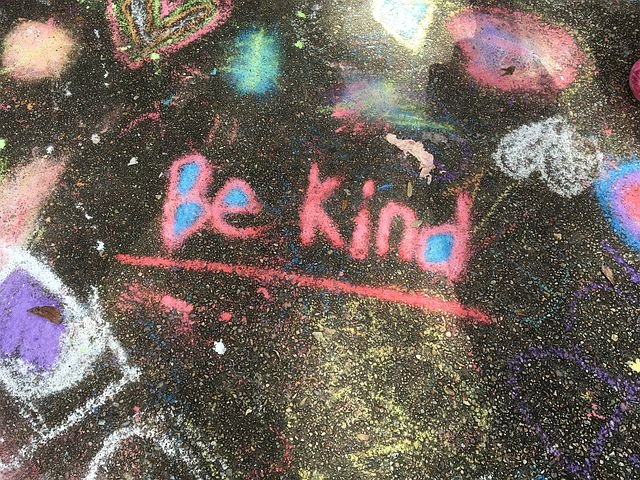Kindness in schools – Mental Health Awareness Week

Mental Health Awareness Week had kindness as its theme this year.
What is kindness? Is it something that can be actively promoted and strengthened when it’s needed?
How about kindness in schools? Where does it fit in as a planned response to children who struggle to navigate through uncertainty, and stress and behave as others want them to?
“Kindness is more than mere sentiment. Real kindness and concern require us to understand how the other person came to think and feel the way they do, no matter how alien or difficult that might seem to us.” (Professor Peter Fonagy of The Anna Freud Centre and UCL)
I found a way to enact kindness in schools twenty years ago, with Solutions Focused Coaching as the way to work with children’s needs rather than focusing on their behaviour. I call it #structuredkindness because it puts a simple and practical framework around the fundamentally kind, empathetic practices of people already have, in the ways they interact with children. And of deep value lies in its systematic alternative to the pathway of stepped sanctions common in UK schools.
We know that many children have additional needs that generate challenging behaviour. We also know these same children have been disproportionately excluded, in increasing numbers, over recent years. We can anticipate exclusions increasing further in schools which resort to strict discipline methods with children who have experienced stress and distress, returning after lockdown.
Peter Fogarty puts it clearly; “A traumatised child feels obliged to remain hyper-vigilant just to survive. The result is often a vicious circle of social disengagement, distrust and withdrawal: our tolerance of their needs and the challenges they present is limited, and we withdraw kindness when it is needed most. This is the challenge we face when thinking about mental health and social inclusion.” (Guardian 17 May 2020)
This raises a crucial point; that those children most in need can drain our reserves of tolerance and kindness, leaving them unable to move into a state in which they can engage, learn and flourish.
Do we need more tolerance rather than less?
In schools, structured behaviour management backed up by data-collection, is aimed at creating a safe, highly consistent framework for learning based on predictable consequences to behaviour of all kinds. This makes good sense as far as it goes.
But when an over-rigid behaviour management system fails to match the diverse needs of children, by use of the stepped sanctions of isolation and detention, fixed term and permanent exclusion, kindness struggles to keep its footing.
Kindness in action?
Government advice on how to manage children’s behaviour in school always include a nod to the additional needs of some children, and often a vague suggestion that something other than strict discipline is justified.
“Other consequences, such as pastoral conversations, reteaching behaviour, therapeutic approaches, etc. must also be part of the whole school repertoire. Consequence systems, in order to be highly effective, need to be as consistent as possible throughout the entire school…. While it would be inappropriate to detail precise tariffs for every school circumstance, any student caught deliberately breaking such (Covid19 related) rules should receive serious and possibly severe consequences: immediate fixed term exclusions, parental meetings, in-school isolation etc. Schools should also, in the most extreme cases consider the use of reporting matters to the police. The point isn’t that we want to see such reactions; but as ever with any sanction, the sincere and authentic execution of it conveys a clear message to the student body about what behaviour is tolerated and what is not. This is, quite literally, a matter of life and death for some, and especially adults. These are not normal times.” Tom Bennett, May 14 2020 Rebooting behaviour after lockdown – advice to schools reopening in the age of Covid-19
It doesn’t align with the overwhelming evidence that, far from serious and severe consequences, children need to experience kindness to be able to self-regulate and recover from experiences that can threaten their mental health, wellbeing and engagement.
The fact these times are not normal offers us a chance to reflect on what we did and might do, to pause, rethink and reframe our approach to children looking to us for support and guidance.
They demand more than more of the same, putting aside tariffs, sanctions and punishments and putting in their place the safety of kinder routines together with the structured kindness that listens to children and responds to what they say. For all our sakes. For Mental Health Awareness Week and beyond.

